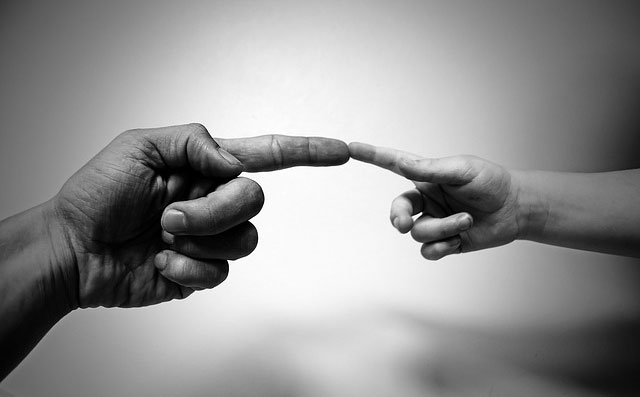Is Alcohol Bad in Makeup & Skincare? Good Vs Bad Alcohol Ingredients

Bad vs. Good Alcohol in Cosmetics
Just to confuse you, there's both good and bad types of alcohol in skincare! Our goal is to make it easy for you to recognize which ones to look for on the label and which ones to avoid.
Our concern about alcohol in skincare or makeup ingredients is with the 'bad' alcohols such as Isopropyl alcohol in cosmetics which cause a whole list of problems "The research (and we mean a lot of research) makes it perfectly clear: alcohol as a main ingredient in any skincare product is a problem." Paulas ChoiceThe Bad Alcohol in Skincare
These alcohols are deemed as safe by PubMed.gov but they're not without their issues.
They can be pro-aging, yes, you read that right! Pro not anti-aging and any short-term benefits they are used for, such as making creams feel lighter, helping other ingredients to penetrate your skin, and as a preservative are more than outweighed by the long-term negative effects: dryness, irritation and breakouts.
While the bad alcohol's initially mattify your skin; alcohol can actually increase oiliness, making your oily skin to look even more shiny), cause erosion of the surface of your skin, and place a strain on how skin rejuvenates itself.
"Bad alcohols in skincare deteriorate your skin’s protective barrier which means your skin is no longer effective at keeping moisture in. It also stimulates oil production which could lead to breakouts if your skin makes too much oil." HappySkincare
Listen to the full Glamour & Gains podcast on Good Vs. Bad Alcohol to make understanding and knowing what to look for in makeup and skincare ingredients easy.
Get more beauty, fitness and lifestyle content by subscribing to the weekly Glamour & Gains podcast.
AVOID:
- Ethanol
- Isopropyl alcohol (I know how drying isopropyl alcohol is to skin from originally cleaning with it without gloves! Now I'm always gloved up when using this)
- Alcohol denat (the #1 ingredient in LipSense) /denatured alcohol
- Methanol
- SD alcohol
- Benzyl Alcohol (there are exceptions, eg medications such as those for treating head lice)
"You may have heard that alcohol is a good ingredient because it helps other ingredients like retinol and vitamin C absorb into skin more effectively. Although it’s true that it does enhance absorption of ingredients, the alcohol also destroys skin’s surface and the very substances that keep your skin healthy over the long term." Paula's Choice.
Side note: We are totally anti 'bad' alcohols, along with others such as Jeffree Star (I'll do whatever he's doing to have his skin!).
We don't live in a perfect world so if you're not ready to totally overhaul your skin and makeup items switch out as you run out and restock.
How soon/where alcohol is listed in the ingredients is also a major factor. You want to make sure it's not towards the top of the list as the sooner it's mentioned the higher its concentration. Try and make sure it's not within the top 6 ingredients.
Sometimes a tiny amount of alcohol is included in a product because it was used during the extraction process of one of the other ingredients on the list. In this case it'll be towards the bottom of the ingredients list and may barely matter.
However, there are other less harmful ways to get skincare ingredients to absorb into the skin without resorting to cheap, harmful alcohols or damaging your outer layer of skin and causing more problems than benefits.
"In predictive skin sensitization tests, 50% aqueous ethanol induced delayed allergic skin reactivity in 6 of 93 human volunteers." Europe PMC Induction of Human Skin Sensitization to Ethanol
"Ethanol use is associated with skin irritation or contact dermatitis, especially in humans with an aldehyde dehydrogenase (ALDH) deficiency...Until unambiguous evidence about the safety of ethanol in topical preparations exists, the necessity of its use should be critically evaluated." Journal of Occupational Medicine and Toxicology safety evaluation of topical applications of ethanol.
The Good Alcohol to Look For in Skincare
These good, fatty alcohols are usually solid wax pieces which help emulsify cosmetics so they don’t separate. Not only do fatty alcohols look completely different to the “bad” alcohols they affect your skin completely differently too and are beneficial; acting as emollients which protect your skin and help it to keep moisture in.
LOOK FOR:
- Cetearyl
- Stearyl
- Cetyl
- Behenyl
Conclusion
Given the pro-aging damaging effects of 'bad' alcohols in skincare and cosmetics it's easy to understand why to avoid them.
Always check the ingredient list or look for all-natural skincare and makeup brands. Dawes Custom Cosmetics never uses 'bad' alcohol in any of their cosmetics, you'll only find the good alcohols such as Cetearyl (made from Cetyl Stearyl) to protect the skin and lock moisture in for hydrated, nourished lips.
For the full ingredient list of any product please check the ingredients tab in the footer of our website or send us an email and we'll be happy to send it to you.
If you have oily skin, you might also find this article helpful with essential skin care tips for your skin type.
12 essential skin care tips for oily skin
Resources
Paula's Choice
Happy Skincare
Healthline
Europe PMC
Journal of Occupational Medicine and Toxicology
PubMed.gov

